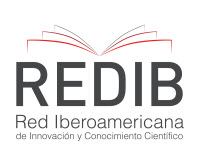¿Es posible la comprensión histórica sin anacronismo?
DOI:
https://doi.org/10.14393/artc-v23-n43-2021-64084Palavras-chave:
anacronismo, comprensión histórica, genocidioResumo
El anacronismo se presenta como un obstáculo a la tarea de la historiadora o historiador que, en el afán por comprender el pasado, debe evitar las intromisiones de elementos que correspondan a una época distinta a aquella de su objeto de estudio, fundamentalmente, aquellos que provienen de su propio contexto. Problema largamente abordado por la teoría de la historia francesa así como por la filosofía y la historia del arte, el anacronismo da cuenta de un problema y a la vez de una condición necesaria. En este trabajo vamos a valorar el papel que juega el anacronismo en la comprensión histórica, para lo cual nos vamos a valer de dos ejemplos: las restituciones de objetos que realizan los museos en respuesta a reclamos de las comunidades originarias y la aplicación de las categorías de análisis que fueron creadas posteriormente a sucesos del pasado a los cuales se pretenden explicar, como es el caso del uso del concepto de “genocidio”. Finalizaremos argumentado a favor de la función que el anacronismo tiene para la comprensión del pasado y para iluminar el mundo presente.
Downloads
Referências
<https://undocs.org/pdf?symbol=es/A/RES/260(III)>.
<https://www.museo.fcnym.unlp.edu.ar/restituciones/restituciones_presentacion-21>.
AMETRANO, Silvia. Los procesos de restitución en el Museo de La Plata. Revista Argentina de Antropología Biológica, v. 17, n. 2, La Plata-Buenos Aires, jul.-dic. 2015.
ARENDT, Hannah. Eichmann en Jerusalén. Barcelona: Lumen, 1999.
ARISTÓTELE. Política: libro I. Madrid: Gredos, 1994.
BELVEDRESI, Rosa. E. ¿Hay una objetividad específica para la historia? História da Historiografia: International Journal of Theory and History of Historiography, v. 13, n. 34, Ouro Preto, dez. 2020.
BENJAMIN, Walter. Sobre el concepto de historia. In: REYES MATE, Manuel. Medianoche en la historia: comentarios a las tesis de Walter Benjamin. Madrid: Trotta, 2009.
BLOCH, Marc. Apología para la historia o el oficio del historiador. 2. ed. México: Fondo de Cultura Económica, 2001.
CARDOSO JR., Helio Rebello. The analytical metaphysics of time and the recent Theory of History: overtones of the debate about resentism. História da Historiografia: International Journal of Theory and History of Historiography, v. 14, n. 35, Ouro Preto, jan.-abr. 2021. Disponible em <https://historiadahistoriografia.com.br/revista/article/view/1739>. Consultado el 29 abr. 2021.
DANTO, Arthur. Analytical philosophy of history. In: Narration and knowledge. New York: Columbia University Press, 1985.
DELRIO, Walter, LENTON, Diana MUSANTE, Marcelo y NAGY, Mariano. Discussing indigenous genocide in Argentina: past, present, and consequences of Argentinean State policies toward native eoples. Genocide studies and prevention: An International Journal, v. 5, iss. 2, Tampa, 2010. Disponible en <https://scholarcommons.usf.edu/gsp/vol5/iss2/3/>. Consultado el 7 abr. 2021.
DIDI-HUBERMAN, Georges. Ante el tiempo: historia del arte y anacronismo de las imágenes. Buenos Aires: Adriana Hidalgo, 2011.
DOSSE, François. De l'usage raisonné de l'anachronisme. Espaces Temps, n. 87-88, Lyon, 2005. Disponible en <https://www.persee.fr/doc/espat_0339-3267_2005_num_87_1_4372>. Consultado el 19 mayo 2021.
FEIERSTEIN, Daniel. Unicidad, comparabilidad y narración: apuntes sobre método, teoría y política a propósito del genocidio nazi. In: El genocidio como práctica social: entre el nazismo y la experiencia argentina. Buenos Aires: Fondo de Cultura Económica, 2007.
FRIEDLANDER, Saul. En torno a los límites de la representación: el nazismo y la solución final. Buenos Aires: Universidad Nacional de Quilmes Editorial, 2008.
GINZBURG, Carlo. Nossas palavras e as deles: o ofício do historiador na atualidade. ArtCultura: Revista de História, Cultura e Arte, v. 23, n. 42, Uberlândia, jan.-jun. 2021. Disponible em <https://seer.ufu.br/index.php/artcultura/article/view/61847>. Consultado el 4 ago. 2021.
GINZBURG, Carlo. Our word, and theirs: a reflection on the historian’ craft, today. Cromohs: Cyber Review of Modern Historiography, v. 18, Firenze, 2013. Disponible en <https://oajournals.fupress.net/index.php/cromohs/article/view/6892/6890>. Consultado el 5 jun. 2021.
HARTOG, François. El espejo de Heródoto: ensayo sobre la representación del otro. Buenos Aires: Fondo de Cultura Económica, 2003.
HARTOG, François. Regímenes de historicidad: presentismo y experiencias del tiempo. México: Universidad Iberoamericana, 2007.
KINGSTON, Lindsey. The destruction of identity: cultural genocide and indigenous peoples. Journal of Human Rights, v. 14, n. 1, Mansfield, ene. 2015.
KOSELLECK, Reinhardt. Cambio de experiencia y cambio de método. Un apunte histórico-metodológico. In: Los estratos del tiempo. Barcelona: Paidós, 2001.
KUUKKANEN, Jouni-Matti. Postnarrativist philosophy of historiography. New York: Palgrave MacMillan, 2015.
LEMKIN, Raphael. El dominio del Eje en la Europa ocupada. Buenos Aires: Prometeo, 2009.
LORAUX, Nicole. Eloge de l’anachronisme en histoire. Le Genre Humain, 1, n. 27, Paris, 1993. Disponible en <https://www.cairn.info/revue-le-genre-humain-1993-1-page-23.htm>. Consultado el 13 abr. 2021.
MITROVIĆ, Branko. Attribution of concepts and problems with anachronism. History and Theory, n. 50, Middletown, oct. 2011.
MUSSY, Luis de y VALDERRAMA, Miguel. Anacronismo. In: Historiografía posmoderna: Conceptos, figuras, manifiestos. Santiago de Chile: Red Internacional del Libro, 2010.
NAISHTAT, Francisco. Anacronismo y actualización: reflexiones sobre discontinuidad, época y pervivencia (Nachleben) en los conceptos contemporáneos del tiempo histórico. In: BRAUER, Daniel, ACHA Omar, RATTO, Adrián y MARTÍN, Facundo (compiladores). Actas del IV Congreso Internacional de Filosofía de la Historia. Buenos Aires: Teseo, s./a. Disponible en <https://www.teseopress.com/actasivcongresointfilohistoria/chapter/anacronismo-y-actualizacion-reflexiones-sobre-discontinuidad-epoca-y-pervivencia-nachleben-en-los-conceptos-contemporaneos-del-tiempo-historico/>. Consultado el 7/4/2021.
PÉREZ, Pilar. Archivos del silencio: Estado, indígenas y violencia en Patagonia central, 1878-1941. Buenos Aires: Prometeo, 2016.
SCOTT, Joan Wallach. The fantasy of feminist history. Durham & London: Duke University Press, 2011.
Downloads
Publicado
Edição
Seção
Licença
Autores que publicam nesta revista concordam com os seguintes termos da licença Creative Commons, adotada a partir da ArtCultura, v. 21, n. 39 (jul.-dez. 2019).
CC BY-NC-ND 4.0: o artigo pode ser copiado e redistribuído em qualquer suporte ou formato. Os créditos devem ser dados ao autor original e mudanças no texto devem ser indicadas. O artigo não pode ser usado para fins comerciais. Caso o artigo seja remixado, transformado ou algo novo for criado a partir dele, ele não pode ser distribuído.
Autores têm autorização para assumir contratos adicionais separadamente, para distribuição não exclusiva da versão do trabalho publicada nesta revista (ex.: publicar em repositório institucional ou como capítulo de livro), com reconhecimento de autoria e publicação inicial nesta revista.












